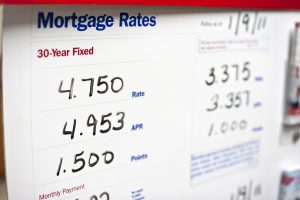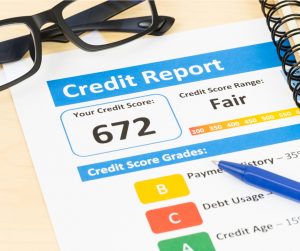If you’ve never heard of recasting a mortgage loan, don’t be surprised. It isn’t generally advertised, and the method isn’t widely used. And yet, it might be of benefit to you.
What does recasting a mortgage loan entail?
Briefly, it entails paying a lump sum toward your mortgage loan and having the note re-written with the now smaller principal balance. The interest rate and the term of years remaining on the loan remain the same.
The benefit, of course, is lower monthly payments. If your original loan was for $200,000 at 4% for 30 years, your principal and interest payment would be $954.83. Making a $5,000 lump sum payment with recasting would bring it down to $930.96, which might not be enough to matter. However, a $20,000 lump sum payment with a recast would reduce the payment to $859.35 – almost $100 difference per month. If you have 25 years remaining on your loan, that would amount to a hefty $30,000.
You could, of course, refinance instead, and if interest rates have come down, it could be a wiser choice.
If your original interest rate is the same or lower than current rates, then recasting makes more sense, especially since it is far easier, costs far less, and can usually be done in less than 30 days.
Recasting is done with far less paperwork, with no appraisal, no income verification, and no credit check. You do, however, need to be current on your mortgage payments. While a refinance can cost up to 4 or 5 thousand dollars, the recast fee is only a few hundred.
Who can use recasting?
In order to consider recasting you must first have a conventional loan. FHA and VA loans are not eligible.
Second, your bank must offer recasting. Most large banks offer this service, while small banks and credit unions usually do not.
Finally, you must have a good sized lump sum to apply to your mortgage. As a general rule of thumb, $5,000 is the minimum.
Who does use mortgage loan recasting?
Anyone who has come into a lump sum and wishes to turn it into equity in their home. It may be from an insurance settlement, an inheritance, an investment distribution, a large bonus, the sale of investment property, or from the sale of a previous home.
Recasting is particularly useful for those who purchased a new home before selling a previous home. They may have intended to roll the equity from their last home into their new home, but were unable to sell it in time. Recasting allows them to complete a “do over” without the expense of a refinance.
Recasting doesn’t shorten your loan term. Making a lump sum payment without recasting does.
If you’re not concerned with lowering your monthly payment, but do want to reduce the amount of interest you’ll pay by paying your loan off early, simply apply that lump sum with your next payment.
Take a look at the billing statement from your last mortgage payment. Unless you’re nearing the end, you’ll likely see that the payment on principal is 1/3 or less of the total payment.
For instance, if your payment is $1,500, the principal might be $500, with the rest going to interest, taxes, and insurance. Provided that you do make payments on time each month, every time you pay an extra $500, you’ll reduce your loan term by one month. A $5,000 lump sum would shave 10 months from the term.
Would you like to explore the pros and cons of recasting your own home mortgage loan?
We’ at Homewood Mortgage, the Mike Clover Group will be glad to discuss it with you.
Call us today at 800-223-7409
Mike Clover
Homewood Mortgage,LLC
Mortgage Banker
1-800-223-7409
NMLS# 234770
18170 Dallas Pkwy
Ste. 304
Dallas, TX 75287


















